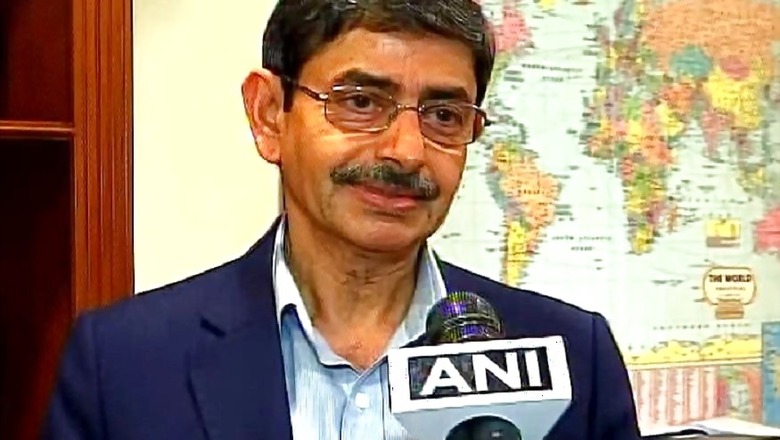
views
On June 25, Bharatiya Janata Party (BJP) national general secretary Ram Madhav said the talks between the Centre and Naga political groups were in an “advanced stage”. “We are engaged in serious talk... we want an honourable solution within our Constitution,” he said, addressing a virtual rally organised by the Nagaland unit of the BJP to mark one year of the Narendra Modi government’s second term.
The next day, a letter written by Nagaland governor RN Ravi indicting the Neiphiu Rio government found its way to the media. Without naming any militant organisation, the governor claimed that “armed gangs” were brazenly running their own governments in the northeastern state challenging the legitimacy of its elected authority and creating a "crisis of confidence" in the system.
“In such a backdrop I can no longer abstain from my constitutional obligations for law and order in the State under Article 371A (1)(b) of the Constitution of India,” read the letter dated June 16. Article 371A (1)(b) confers special responsibility on the Nagaland governor with respect to law and order.
These two were separate developments, yet they may be seen in the context of the Naga peace process, which has been hanging fire for the past eight months. Ravi was the Centre’s interlocutor for Naga talks before he took charge as Nagaland governor last August.
In August 2015, rebel group National Socialist Council of Nagalim (NSCN-IM) had signed a framework agreement with the Modi government, after 22 years of ceasefire. Subsequently, Ravi, a former special director of the Intelligence Bureau, was appointed interlocutor by the Centre. He held a series of discussions with the NSCN-IM, but the final settlement remains elusive as the rebel group was believed to have hardened its stand on a “pan-Naga identity, a separate flag and a constitution” in the last meeting held in October 2019. The 2015 framework agreement acknowledged the “unique history” of the Nagas, but remained silent on the NSCN-IM)s demand for a “Greater Nagalim” or integration of all Naga-inhabited areas of Manipur, Assam and Arunachal Pradesh with Nagaland.
NSCN-IM hits back
In his letter addressed to CM Rio, Ravi claimed the state government was under duress to give regular ransom to the armed gangs, and the latter keep the people in towns and its neighbourhood terrorised. Brazen display of firepower by the rival gangs for turf control drives the people to panic, the letter said without naming any organisation. That the various militant outfits, known as UGs in local parlance, run parallel administrations in the state is an open secret in Nagaland. A large number of people, including government employees, traders and businesses have to pay “tax” to these outfits. While political parties are aware of this fact, they appear to be helpless in putting an end to this practice.
Neither Rio's Nationalist Democratic Progressive Party (NDPP), a BJP ally, nor the opposition Naga People’s Front (NPF) has made any comment on this matter. The state unit of the Congress on Sunday said, governor RN Ravi has correctly assessed the law and order situation in the state.
Rejecting the governor’s “extortion” charge, the NSCN-IM said it levied legitimate taxes on people. “Taxes have been the source of sustenance that has brought the Naga political movement this far...legitimately acknowledged by earlier Interlocutors and Indian authorities...” the outfit said in a statement to media.
Another setback for Naga peace process?
Whether the governor’s action would bring any visible change in the situation is to yet be seen, but it could further complicate the already-fragile peace negotiation with the militant outfit. The last meeting held between the Centre and Naga representatives on October 24, 2019, remained inclusive after the government shot down the NSCN-IM’s demand for a separate flag and a Constitution.
Adding to the complexity of the issue, the Centre has been talking to six more rebel organisations, called the Naga National Political Groups (NNPGs), for the past few years, in order to reach a comprehensive deal. Experts believe that the government wants to avoid past mistakes, like in the case of 1975 Shillong Accord, when the agreements reached by some senior leaders of the Naga National Council (NNC) was rejected by another faction, which later formed the NSCN, says Rajeev Bhattacharyya, author of ‘Rendezvous with Rebels’.
With the initial euphoria surrounding the proposed Naga peace accord slowly fading, the BJP-led central government should avoid a one-size-fits-all approach, and instead think out of the box to find a solution which is acceptable to all Naga groups. There are already signs of despair in the Naga hills and people are apprehensive about the Centre’s intention with regards to the Naga political issue. The government would do well to recognise the fact that Nagaland is not Jammu and Kashmir although both are disturbed areas, and it must avoid the temptation of replicating the J&K model in the northeastern state.
(The writer is a senior journalist and author based in Delhi. Views expressed are personal.)













Comments
0 comment